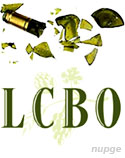This is an archive of news stories and research from the National Union of Public and General Employees. Please see our new site - https://nupge.ca - for the most current information.
OPSEU criticizes plan, saying it guarantees that liquor and wine bottles will be smashed and melted down after just a single use
 Toronto (12 September 2006) - The Ontario government will adopt a deposit-return system for liquor and wine containers starting Feb. 1.
Toronto (12 September 2006) - The Ontario government will adopt a deposit-return system for liquor and wine containers starting Feb. 1.
However, residents will not be able to return empties to publicly-run Liquor Control Board of Ontario outlets, where liquor and wine are purchased across the province. Instead, they will be asked to take the empties to the nearest privately-operated Beer Store outlet.
The LCBO is the world's largest and most profitable publicly-run liquor agency. Ontario's network of Beer Stores is operated privately by brewers.
The new plan is supposed to be good for the environment but the real benefits will be marginal, argues the Ontario Public Service Employees Union (OPSEU/NUPGE), which represents liquor store workers.
The proposal will guarantee that no liquor bottles will be used more than once, the union says. Rather, all bottles will be smashed and melted down, in some cases using nuclear energy, to make new bottles, again to be used just once before being smashed and melted down again, OPSEU predicts.
600 million a year
By contrast, an estimated 98% of beer bottles are returned in Ontario and are re-used an average of 15 to 20 times each. The LCBO sells approximately 600 million liquor and wine containers annually.
Premier Dalton McGuinty announced the expanded deposit-return plan over the weekend.
“From the point of view of eliminating solid waste and conserving energy, the only sensible option is to create a deposit-return system that encourages re-use,” says OPSEU president Leah Casselman.
"While any move to divert packaging from landfills is a step forward, it makes little sense environmentally to smash bottles, use nuclear power to melt them down, and manufacture new bottles when we have millions of perfectly good bottles already.”
Casselman says taking empties to Beer Stores will "guarantee" that liquor bottles will "never be re-used in Ontario, now or in the future."
“The only way to create a system that encourages re-use of liquor bottles is through close co-operation between the retailer – the LCBO – and the wineries and distilleries,” she says.
"The LCBO has a close business relationship and logistical links with its suppliers, and as the largest buyer of alcohol in the world, it also has considerable influence with them. In contrast, The Beer Store has no connection of any kind with Ontario wine and liquor producers.”
Comparable deposits
McGuinty said no decision has been made on the deposit to be charged to liquor customers. However, it will be comparable to rates in other provinces, which range from 10 cents to 40 cents a container, he indicated. The system will cover all LCBO alcohol bottles and cartons.
Ontario residents are now encouraged to recycle liquor and wine bottles through a province-wide blue box program, operated by municipalities and partly funded ($5 million a year) by the LCB0. The overall cost to taxpayers is about $23 million annually.
Despite blue boxes, many liquor and wine bottles still end up in provincial landfill sites. The Association of Municipalities of Ontario (AMO) has welcomed McGuinty's announcement, saying that it could divert up to 80 million liquor and wine bottles a year.
McGuinty was unable to say whether the LCBO would continue to contribute to the blue box program after the deposit-return system is implemented. NUPGE
